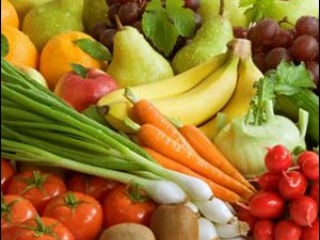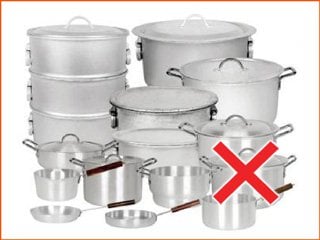
With the objective of providing a balanced diet and nutrition to children and mothers the Modi Governmnet had declared September 2019 as the National Nutrition Month. Through it the Government has been successful in giving this programme the form of a public campaign. So as the awareness about this praiseworthy Government programme be created in the public here we are starting a series of articles with the caption ‘Nutrition for a healthy Bharat’. This will be directed not only towards maternal and child health but to the rest of the population of Bharat giving it specific information on diet and the appropriate perspective underlying it. This is a small attempt by us to create awareness about this Government programme.
1. Real cause of disease is no control over eating

Animals have the intellect to decide what to eat and what not to eat. Cattle, goats etc never eat poisonous plants. However man despite being one with good intellect has absolutely no intellect to decide what to eat. Modern medicine has classified foods into protein, carbohydrate, minerals, salts and water. Ayurveda has clearly told how various nutrients act on vata (wind), pitta (bile) and kapha (phlegm), dhatu (semen), excreta and organs. Studying those sciences if each one decides how much to eat considering his constitution, age, season, digestive ability etc. then it can make man disease-free. However, man knows but does not change because he has no control over eating. Knowing full well that eating bhelpuri when suffering from acidity will cause stomach-ache man does not refrain from feasting on it. Ayurveda calls this itself the folly of the intellect and the root cause of all diseases.
2. Drifting from natural foods
Primitive man would survive on roots, fruit and meat of animals they had hunted. Pure air, water from streams and fresh food would keep him healthy. Now there is population explosion and hardly any jungles and trees. Fumes and chemical waste from factories, noise pollution from vehicles, overcrowding have led to air and water pollution. Traders adulterate food, there is widespread use of insecticides to prevent decay of fruit, food grain and vegetables. Consumption of vegetables and fruit by not washing them leads to ingestion of these poisonous chemicals which affect the body adversely. Animals are being fed hormonal tablets such as cortisone to increase their appetite and to induce weight gain in them. Eating such meat leads to ill effects in man.
Food was cooked without salt before its discovery. That is why diseases such a high blood pressure, heart disease, swelling of the body etc. were almost non-existent. Now to flavour food the use of salt has increased tremendously raising the incidence of high blood pressure, heart attack etc.
After discovery of sugar preparation of sweets such as jalebi, basundi, shrikhand, jams, pedhas, barfi etc. has increased raising the incidence of obesity, high blood pressure, diabetes etc. Increase in consumption of beverages such as tea and coffee, pickles and spicy foods have increased hyper acidity, ulcers etc. Preservatives used to prevent decay or fermentation of food, in bottled tomato ketchup, syrups or soft drinks and other foods have adverse effects on the human body.
Air traffic is bringing countries in the world closer. Consequently foods from other countries, spicy savouries etc are now a part of our diet. In fact Chinese, Mexican food is available everywhere. As the new recipes are tasty and spicy and presented appealingly control over eating is next to impossible. After invention of juicers people began to drink sugarcane and other fruit juices. As per Ayurveda you should eat fruit, sugarcane but not drink its juice. This because when you eat them you can discard the decayed part but a machine extracts juice from the spoil fruit as well.
As now people are used to artificial flavours they eat delicious fruit such as apples by applying salt or spices to it. As the facility of the refrigerator is available vegetables are purchased on Sunday and stored in it for a week. Ayurveda on the other hand says that food from the refrigerator should never be warmed and consumed. It is a practice to procure vitamins, calcium, iron etc from tablets instead of natural foods. In fact excess of vitamins, calcium, iron and minerals also leads to adverse effects on the body.
Often ill-effects of habits changing with time and circumstances are not perceived at once. Hence if natural foods are consumed fresh with control on eating then man is able to enjoy a healthy and happy life.
3. What is the cause for change in the digestive capacity ?
We find someone who can eat fifty laddos easily and someone who gets diarrhoea with just a glassful of milk. This difference is due to varying digestive capacity. Digestion depends on different digestive juices and their quality. Each one’s digestive capacity is hereditary.
3 A. Hereditary : Good or poor digestive capacity is hereditary. Some breastfed babies pass 8 to 10 stools a day while some are constipated for even three days.
3 B. Constitution : People with a balanced and pitta constitution have a good digestive capacity but those with a vata and kapha constitution have a poor digestive capacity.
3 C. Age : Children and youth have good digestive capacity. This decreases in old age.
3 D. Food habits : Excessive or too little consumption of food, unbalanced diet and irregular timings of eating decrease the digestive capacity. Food which is heavy, fermented, decayed, stale, unclean and half-cooked is also difficult to digest.
3 E. Deficiency of nutrients : Deficiency of protein or vitamins A and B lower the digestive capacity.
3 F. Diseases of digestive organs : Diseases of the stomach, intestines, liver and gallbladder decrease the digestive capacity.
3 G. Diseases : Every disease affects the digestive system. It decreases particularly in the primary stage of any disease, diseases of the liver and intestine and in debilitating diseases such as tuberculosis.
3 H. Habits : Those not used to drinking milk get diarrhoea by drinking it but they can digest other foods, well. One born in Kerala digests rice and fish and one in Punjab digests wheat and meat easily.
3 G. Mental illnesses : Stress, anger, phobias, anxiety are diseases which reduce appetite and digestive capacity.
3 H. Exercise : Exercise increases appetite and digestive capacity. A healthy individual has good appetite.
(Reference : Sanatan’s Holy text ‘Modern perspective on intake of inappropriate food (including Ayurvedic remedies to diseases caused by unbalanced diet); Author : Dr. and Vaidyacharya Sadguru Vasant Balaji Athavale and Dr. Kamlesh Vasant Athavale.)

 For healthy living avoid food that can cause antagonism due to contra-indications
For healthy living avoid food that can cause antagonism due to contra-indications Ill effects of artificial cold drinks
Ill effects of artificial cold drinks The method of preparing rice is important !
The method of preparing rice is important ! Give up junk food and embrace Ayurveda
Give up junk food and embrace Ayurveda Should sweets be eaten at the beginning or end of a meal ?
Should sweets be eaten at the beginning or end of a meal ? Do not use aluminium or hindalium vessels for cooking
Do not use aluminium or hindalium vessels for cooking